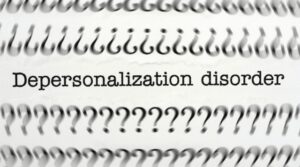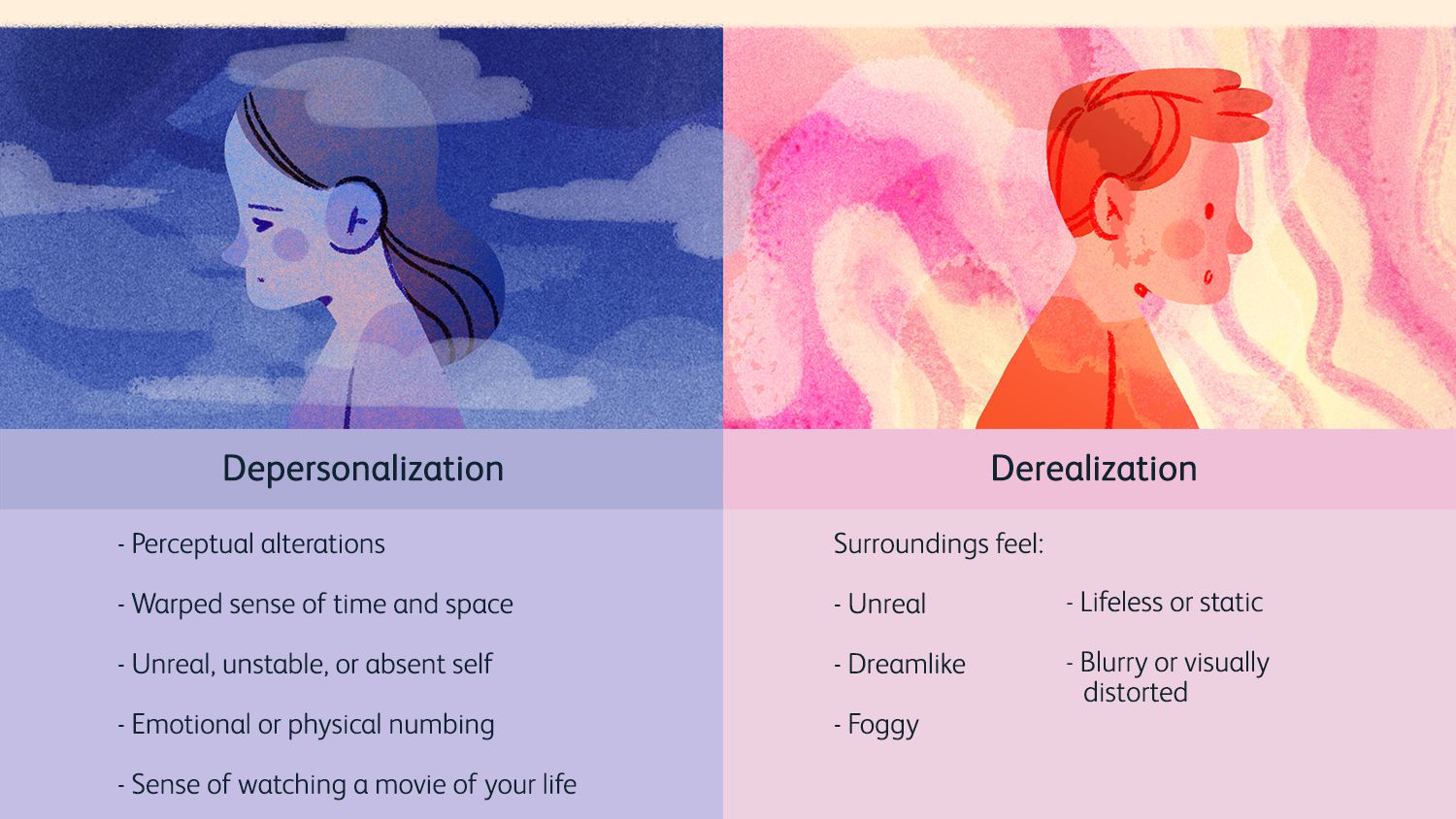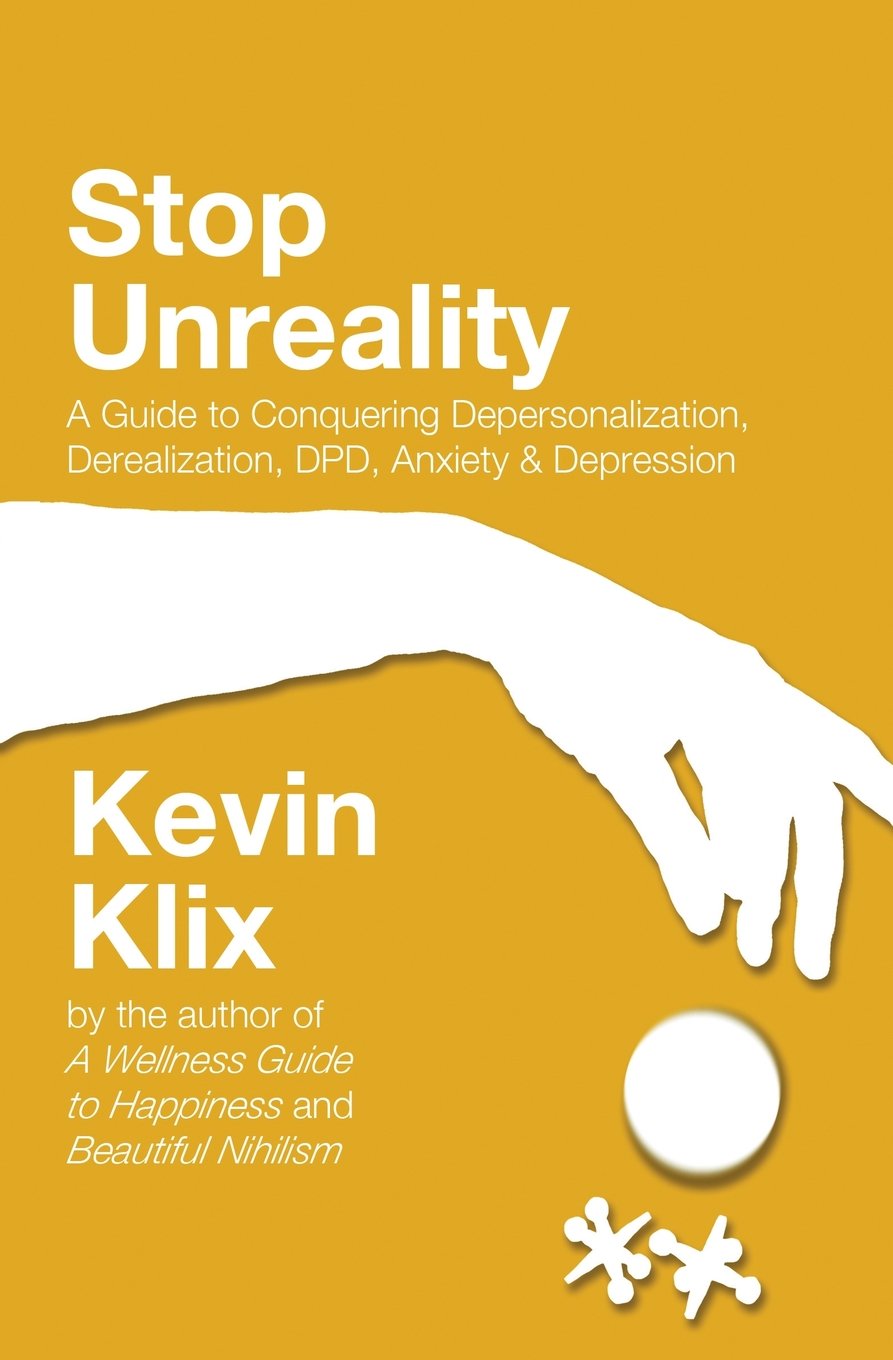In this comprehensive guide, we will discuss all aspects of depersonalization: what it is, how to stop it, and how to get help.
Contents
Understanding Depersonalization

Depersonalization is a feeling of being disconnected from your own body and mind. As a result, you may feel like you are watching everything happen to you from afar! Or that you are in a dream-like state. Also, you may feel numb or dissociated from your surroundings. For some people, depersonalization occurs occasionally. While for others it is a daily struggle. It can be a very scary and isolating experience.
An Extreme Anxiety Symptom
Many people who experience depersonalization also suffer from anxiety. In fact, depersonalization is often seen as an extreme symptom of anxiety. So, if you are struggling with both anxiety and depersonalization, it is important to get help from a professional.
Depersonalization Vs. Derealization

Depersonalization and derealization are two separate conditions, but they often occur together. Moreover, derealization is the feeling that your surroundings are not real or are distorted. For example, you may feel like everything around you is a dream or that you are in a movie.
Degrees of Depersonalisation
There are different degrees of depersonalization, ranging from mild to severe.
- Mild depersonalization can be described as feeling slightly disconnected or out of touch with your surroundings.
- Severe depersonalization is much more debilitating and can make it difficult to go about your day-to-day life.
Types of Depersonalization
There are three main types of depersonalization:
- Depersonalization disorder: This is the most severe form of depersonalization. Thus, people who suffer from this disorder feel chronically disconnected from their bodies and mind.
- Chronic depersonalization: This is a less severe form of depersonalization that occurs frequently or daily.
- Acute depersonalization: This is a short-term form of depersonalization that occurs in response to a traumatic event.
Causes And Risk Factors
Certain risk factors can increase your chances of experiencing depersonalization. Such as:
- Stress
- Trauma
- Anxiety
- Depression
- Substance abuse
- Medication side effects
Stopping Depersonalization
There are several things you can do to stop depersonalization. For instance:
- Understand depersonalization: learn about the condition, what causes it, and how it can be treated. This will help you feel more in control and better able to manage your symptoms.
- Identify your risk factors: knowing what puts you at risk for depersonalization can help you take steps to reduce your chances of experiencing it.
- Try self-help tips and tools: there are several things you can do on your own to help lessen the effects of depersonalization. These include relaxation techniques, stress management strategies, and healthy lifestyle habits.
- Talk to a professional: if self-help measures aren’t providing relief, talking to a therapist can be beneficial. Therapists can provide support and guidance, and may recommend medications or other treatments.
- Hear from experts: if you want to learn more about depersonalization, there are several great resources out there written by experts in the field. Reading these accounts can give you a better understanding of the condition and how to manage it.
Self-help Tips
If you are struggling with depersonalization, there are a few self-help tips that you can do to help stop the symptoms. For instance:
- Relax: When you’re feeling overwhelmed or stressed, depersonalization can become worse. Taking some time for yourself to relax can help ease these symptoms. Try yoga, meditation, or deep breathing exercises.
- Manage your stress: chronic stress can aggravate depersonalization symptoms. Find ways to manage your stress, such as through exercise, journaling, or listening to calming music.
- Stay healthy: eating a balanced diet and getting enough exercise can help improve your overall well-being and may reduce the severity of depersonalization symptoms.
- Get organized: one way to reduce stress is to create a more organized and structured life. This can include setting a routine, creating lists, and using time management tools.
- Talk to someone: sharing your experiences with others can help you feel less alone and may reduce the intensity of your symptoms. Talking to a friend, family member, or therapist can be helpful.
Self-help Tools
Several self-help tools can be useful in managing depersonalization symptoms. For instance:
- Relaxation techniques: these exercises can help you calm down and manage your stress. Techniques such as yoga, meditation, and deep breathing can be helpful.
- Stress management strategies: managing your stress is important in reducing the severity of depersonalization symptoms. Strategies such as exercise, journaling, and listening to calming music can be helpful.
- Positive self-talk: changing the way you talk to yourself can help improve your mood and outlook. Positive affirmations can help boost your confidence and self-esteem.
- Healthy lifestyle habits: Taking care of yourself both physically and mentally is important in preventing and managing depersonalization. Make sure to eat a balanced diet, get enough exercise, and get adequate sleep.
- Time management tools: These can help you create a more organized and structured life, which can reduce stress levels. Examples include setting a routine, creating lists, and using a calendar.
Talking To a Professional

If self-help measures aren’t providing relief, talking to a therapist can be beneficial. Since therapists can provide support and guidance, and may recommend medications or other treatments.
However, when looking for a therapist, make sure to find one who has experience in treating depersonalization. Thus, you can ask your doctor for a referral or search for therapists online.
Therapies
Several therapies are effective in treating depersonalization. For instance:
Talk Therapies
- Cognitive-behavioral therapy (CBT): this type of therapy focuses on changing the way you think and behave. It can help you manage your symptoms and learn how to cope with them.
- Psychodynamic therapy: this type of therapy focuses on the relationships between your thoughts, feelings, and behaviors. It can help you understand the underlying causes of your symptoms.
- Dialectical behavior therapy (DBT): this type of therapy is designed to help people with Borderline Personality Disorder. It teaches skills such as mindfulness and distress tolerance, which can help manage depersonalization symptoms.
Somatic Therapies
These therapies focus on the body and include techniques such as yoga, massage, and acupuncture. They can help reduce tension and stress, which may improve depersonalization symptoms.
- Yoga helps manage several conditions, including depersonalization. Since it can help you relax, improve your mood, and increase your sense of self-awareness.
- Acupuncture is a traditional Chinese medicine practice that involves inserting needles into specific points on the body. Moreover, it is effective in treating a variety of conditions, including depersonalization.
- A massage is a form of therapy that involves the use of hands to massage the skin and muscles. Thus, it can help reduce stress, tension, and anxiety, which may improve depersonalization symptoms.
Brain Therapies
These therapies use technology to help change the way the brain functions. For instance, they include transcranial magnetic stimulation (TMS) and transcranial direct current stimulation (tDCS).
- Transcranial magnetic stimulation (TMS) is a treatment that uses magnets to stimulate the brain. Moreover, it is effective in treating depersonalization and other mood disorders.
- Transcranial direct current stimulation (tDCS) is a treatment that uses electricity to stimulate the brain. Moreover, it is effective in treating depression, anxiety, and chronic pain.
Medication
Several medications may be effective in treating depersonalization. For instance:
- Antidepressants: Antidepressants are the most common type of medication used to treat depersonalization. They work by altering the levels of serotonin and other neurotransmitters in the brain.
- Anti-anxiety medications: These medications are used to treat anxiety disorders, which are often seen in people with depersonalization. They work by reducing the amount of anxiety you feel.
- Mood stabilizers: Mood stabilizers are medications that are used to treat bipolar disorder. They can also help treat depersonalization. They can help regulate mood and reduce symptoms.
- Psychotic medications: If you have a psychotic disorder along with depersonalization, medications such as antipsychotics may be helpful.
NOTE: Several medications may help treat depersonalization. And your doctor may recommend different ones depending on your situation. So, always speak with your doctor before starting any new medication.
Case Study
Here’s a case study of someone who successfully managed their depersonalization symptoms.
“I feel like I’m living in a dream or watching myself from afar.”
These are the words of James who struggled with depersonalization for over a year. He reported feeling disconnected from his body and his surroundings. And he finds it difficult to feel emotions or connect with others. At first, they were mild and only occurred occasionally. However, over time the symptoms became more severe and began to interfere with his daily life.
Though James tried self-help measures such as relaxation techniques and stress management. But they have not provided relief. Thus, he eventually decided to see a therapist. The therapist worked with James to identify the underlying causes of his symptoms. In addition, they taught him some CBT techniques to help him manage his symptoms.
Consequently, after a few months of therapy, James’s symptoms had improved significantly. Fortunately, he was able to return to his normal life and was no longer experiencing any significant symptoms.
Hearing From Experts
Several experts have spoken out about depersonalization. For instance:
- Dr. David Spiegel: Dr. Spiegel is a psychiatrist and professor at Stanford University School of Medicine. He has written extensively on depersonalization and is considered an expert on the topic.
- Dr. Richard Swinson: Dr. Swinson is a psychiatrist and associate professor at McMaster University. He has written extensively on depersonalization and is considered an expert on the topic.
Brain Activity
There is some evidence that the brain activity of people with depersonalization is different from those without the disorder. Such that:
- One study found that people with depersonalization had lower levels of serotonin, a chemical in the brain that helps regulate mood.
- Another study found that people with depersonalization had reduced activity in certain areas of the brain, including the frontal cortex and medial prefrontal cortex.
NOTE: Frontal cortex is responsible for executive functions such as planning and problem-solving.
Resources

There are several resources available for people with depersonalization. For instance:
- The International Society for the Study of Trauma and Dissociation (ISSTD) has several resources on depersonalization, including an overview of the condition, case studies, and expert interviews.
- The Depersonalization Research Foundation also has several resources on depersonalization, including an overview of the condition, case studies, and expert interviews.
Conclusion
Depersonalization can be a very frightening and confusing experience. However, it is important to remember that you are not alone in this. And many people want to help. Moreover, there are many different ways to stop depersonalization. And each person’s journey will be unique. However, the most important thing is to be patient and keep trying until you find what works for you. Since there is hope and there is help. Remember, you can get through this.
A Word From Therapy Mantra
Your mental health — Your psychological, emotional, and social well-being — has an impact on every aspect of your life. Positive mental health essentially allows you to effectively deal with life’s everyday challenges.
At TherapyMantra, we have a team of therapists who provide affordable online therapy to assist you with issues such as depression, anxiety, stress, workplace Issues, addiction, relationship, OCD, LGBTQ, and PTSD. You can book a free therapy or download our free Android or iOS app.

